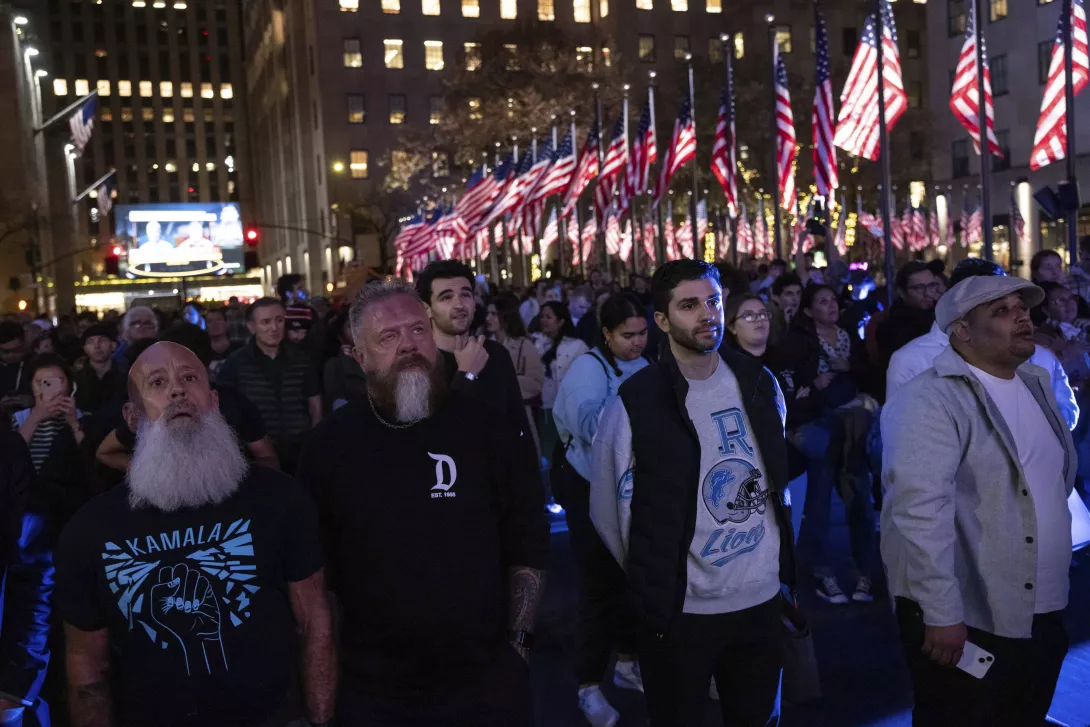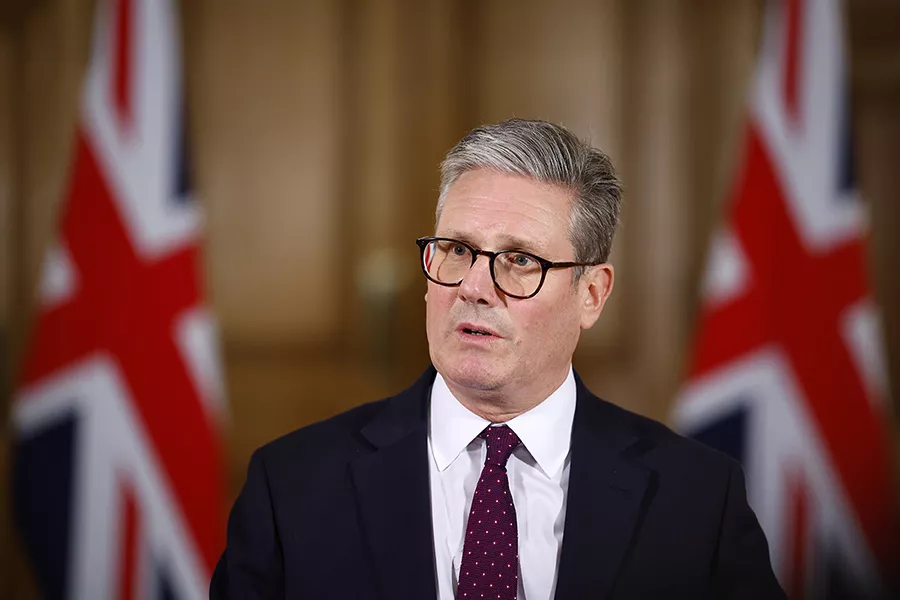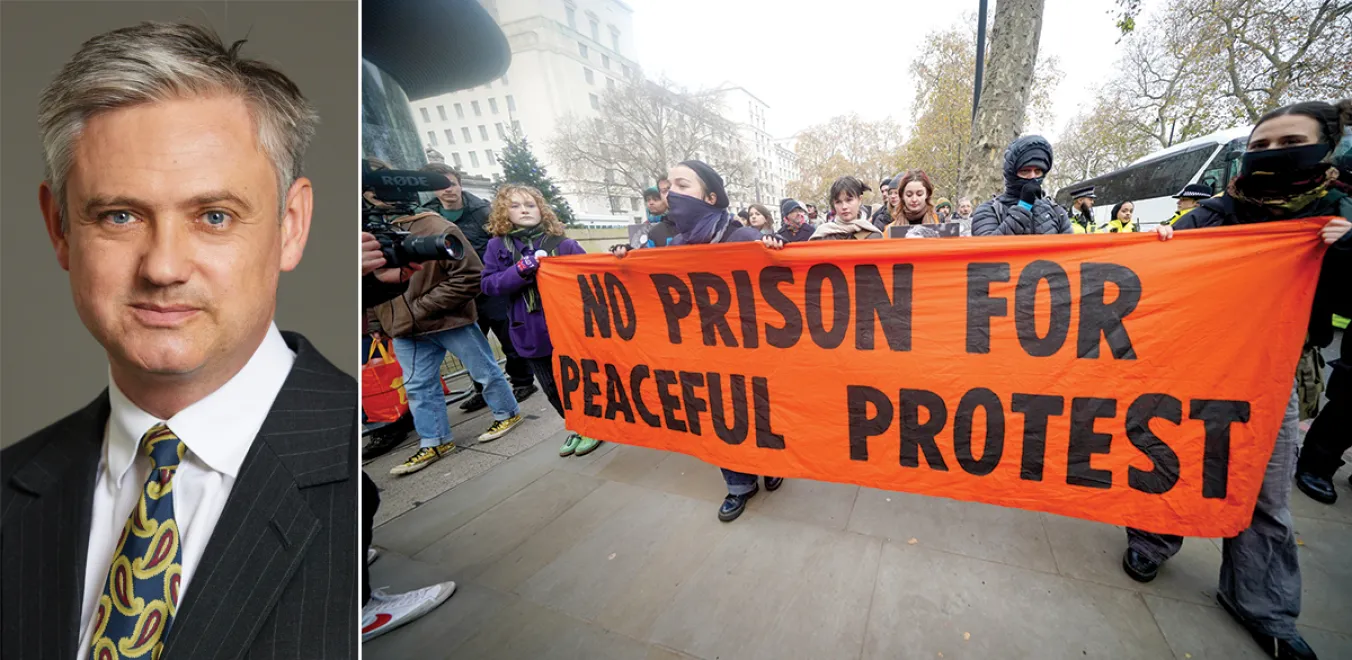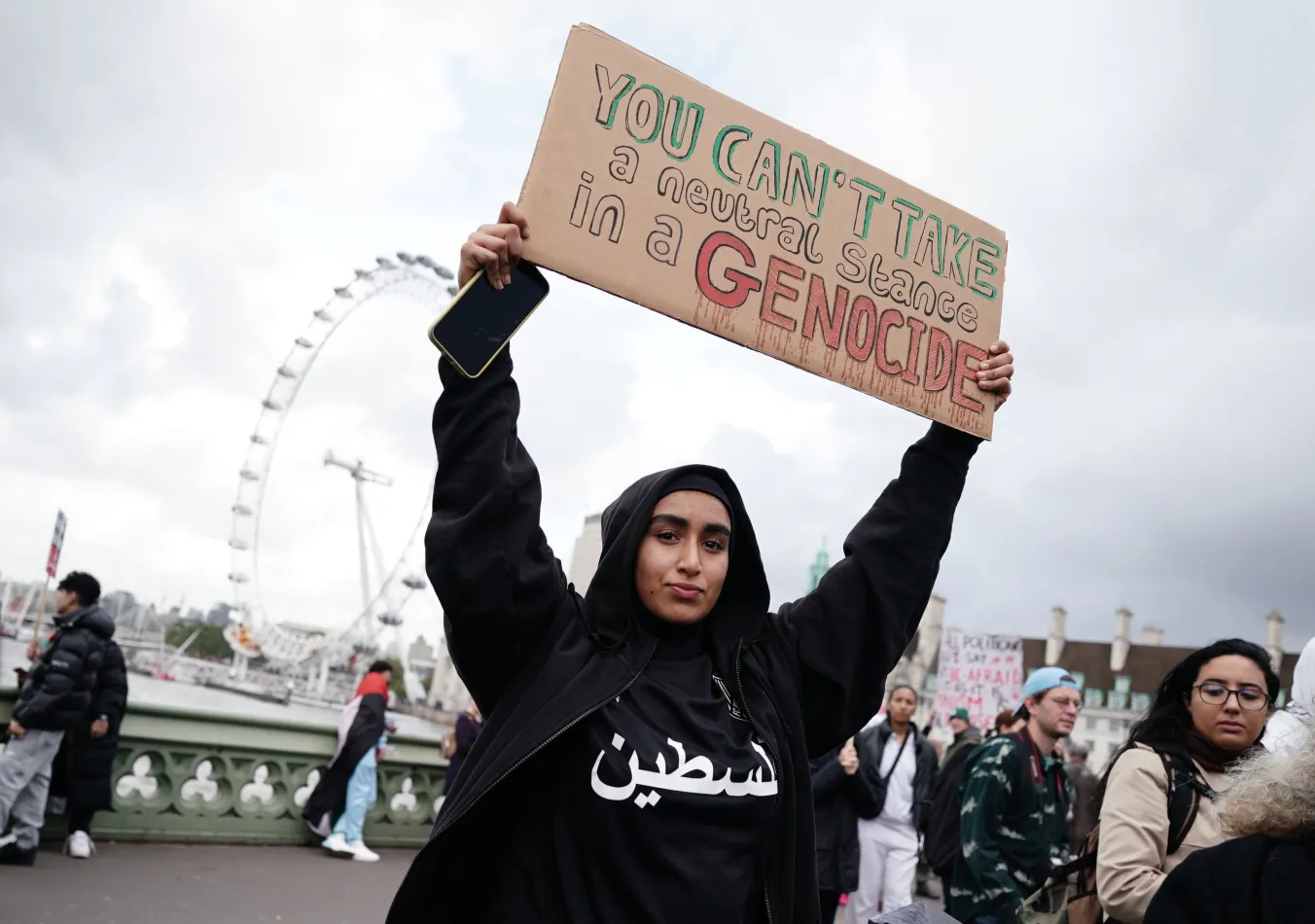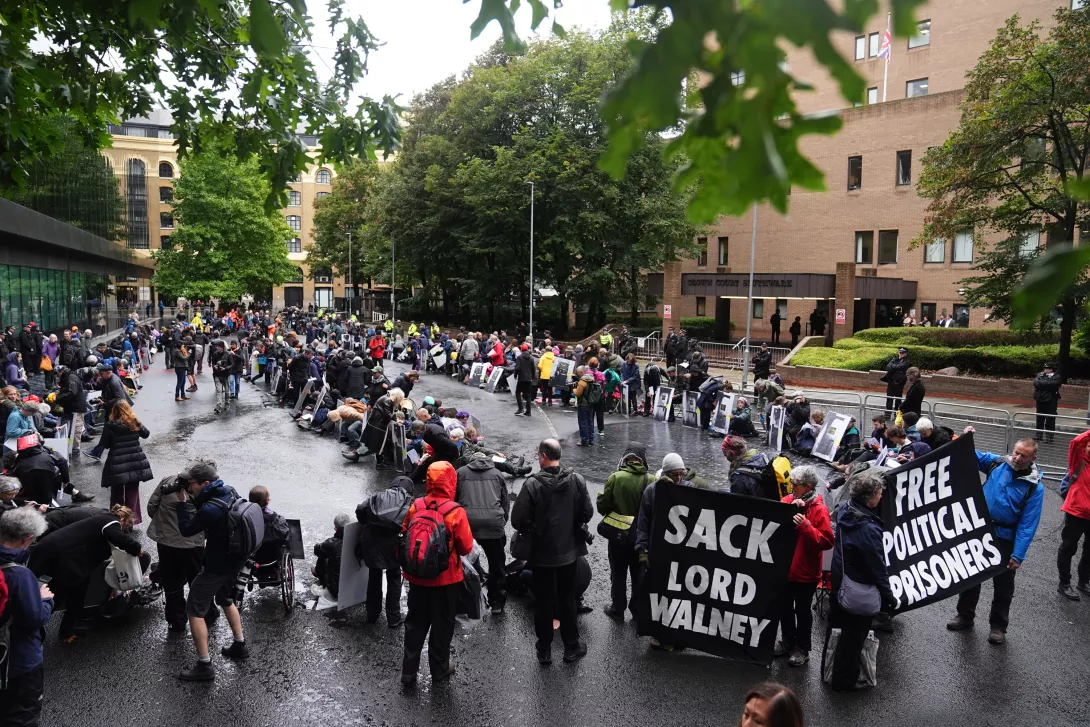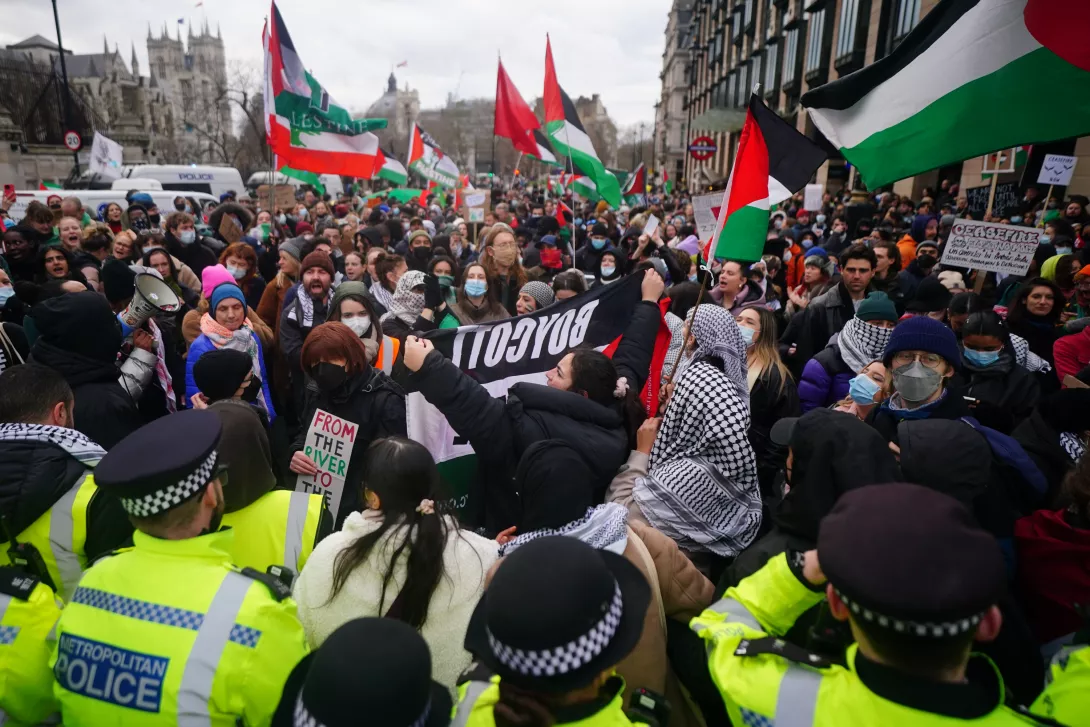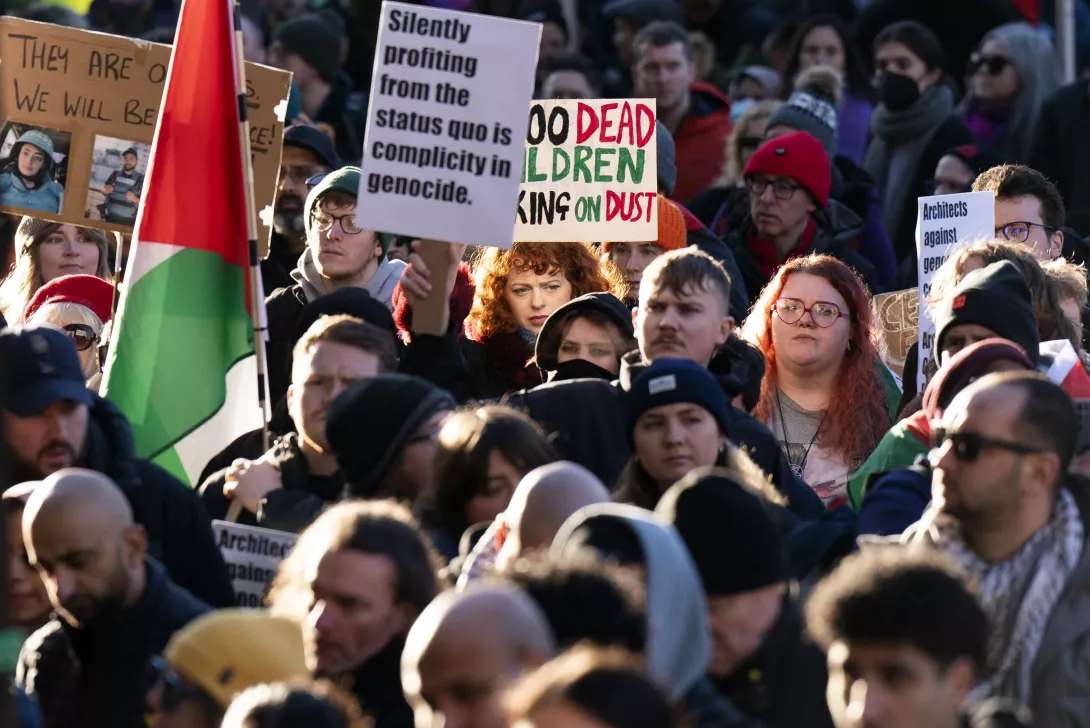
2024 is going to be a general election year. That may well prove to be far from the most interesting political development in the next 12 months.
Certainly, its outcome will make no difference to the most pressing issue of world politics — the genocidal assault on the Palestinian people by the Netanyahu regime, and the danger of the Middle East and the world being engulfed in a wider war as a consequence.
Whether Stumer or Sarnak end up in Number Ten after the election will make no difference to that, nor to British policy on the issue since they have interchangeable views, mandated by their bipartisan commitment to the alliance of US and British imperialisms.
Starmer, in particular, may hope that the war has abated by the time Britain trudges dispirited to the polls since the electoral consequences rock his boat more than the Tories.
But we can be sure that his convenience is one of the last things on the minds of the ethnic cleansers in power in Israel.
Starmer wants the masses off the streets and the Palestinian flags taken down. In that, he is, as on all else, a man of the state.
The most interesting thing in British politics right now is the continuing confrontation between the mass movement to support the Palestinian people — immediately to demand a ceasefire in Gaza — and the British state.
The movement’s size, its anger and its sustained durability cannot but pose a broader threat to the Establishment.
That has been recognised for months. Suella Braverman first tried to ban the demonstrations point blank.
When that got no traction simply because it would have proved an unenforceable decree, she sought to conjure up a street posse to confront both the peace party and the “woke” police.
That amounted to little more than belching beer at the Cenotaph and then lobbing the empty cans at the cops.
The only victim of these first sallies was Braverman herself, who had broadened her field of enemies too extravagantly.
She now sulks in her tent awaiting the summons in the aftermath of defeat, although unlike Achilles she presents more than just a heel as a target.
But the Establishment has continued to grapple with the problem the Powellite home secretary impaled herself on — how to put a stop to the solidarity movement, with its anti-imperialist outlook articulated in an assertive timbre.
Some genius, swilling their port after a festive feast, hit on the next brainwave — make the bastards pay if they want to protest!
Yes, restrict the right to demonstrate to those who can afford it. After all, it is merely an extension of the principles that capitalism extends to every facet of life. What’s not to like?
The only problem facing the authors of this masterplan was finding someone actually stupid enough to publicly propose it.
Well, that is what the House of Lords is for, is it not? A living — just about — rolodex of lobotomised reaction.
Cometh the hour, cometh Lord Walney. Walney, be it said, is a blameless island in Morecambe Bay, its reputation now bespattered by association with John Woodcock, who thrust his newly ennobled self upon it when a peerage seemed more congenial than continuing to pretend to be the Labour MP for Barrow.
His Lordship has clearly prospered, which ought to mean that we should not dare indict him for treason. Yet his record speaks otherwise. Today he is the Tory government’s adviser on political violence and disruption.
He first proposed banning pro-Palestinian marches in November, and now he is recommending to ministers the pay-to-protest wheeze.
He is explicit in targeting the mass movement against the Gaza genocide. “There are many ways people can protest in our liberal democracy, they don’t always have to pick mass physical marches that are putting so much strain on our already over-stretched police forces. Particularly marches with high levels of crime and disorder,” Woodcock argues.
It is barely worth picking apart the arguments here. There have been no “high levels” of disorder on the Palestine marches, Braverman’s best efforts notwithstanding.
The analogy with football clubs paying towards policing breaks down when one acknowledges that football is a commercial branch of the entertainment industry. Those attending pay for the ability to do so — the clubs merely pass on a fraction of the ticket price to the police for services rendered to the pursuit of profit and the control of proletarian crowds.
And so on. In Woodcock’s world, the businesses that manufacture nuclear weapons could pay the police in order to process in the cause of death, while the peace movement would be grounded by its incapacity to do so. It can write letters to editors instead, or the contemporary equivalent, the well-turned tweet.
Now, none of this will happen. Policing demonstrations is not a service that Stop the War will wish to pay for.
Doubtless, most democratic and popular organisations will take the same view. Our stewards are quite sufficient to ensure that marches proceed in proper order.
If the police become a service that one can rent or not at will then the consequences will be… interesting.
That is not what Walney/Woodcock wants of course. He wants invoices from the Met to be the wonder weapon that halts — here he puts his finger on it — “mass physical marches.” Stick to your keyboards, social justice campaigners!
It is that militant physical mass that worries the state to the point of distraction. Baron Walney’s half-baked scheme is only the latest manifestation of this.
The Tories have already taken various steps to circumscribe the right to protest, including giving the police extra powers to ban them altogether. Labour does not seem to dissent much from these measures.
Yet still, imperialism’s bloody slaughter in the Middle East drives people out into the public space, uniting hundreds of thousands in the demand for peace and justice, and contempt for the politicians that uphold the present order.
The centre of the capital city becomes a theatre of dissent, a site of mass mobilisation, the birthplace of a movement of opposition.
That movement has so far proved implacable. It knows that our leaders are complicit in a genocide of extraordinary brutality and that the outrages in Gaza are part of a policy that has caused untold suffering in this century alone, not to speak of more distant history.
Netanyahu says that the war in Gaza may continue all year. If he is to be taken at his word, then one may wonder how British politics, and Keir Starmer above all, can survive the prolonged strain.
Labour is already riven, haemorrhaging councillors and members across the country. Many more months of this can only have deleterious consequences.
Some Palestinian leaders are already saying that the solidarity movement in Britain is the most consequential in the world. It is here that the war party can perhaps be defeated and imperialism’s support for Israel successfully challenged.
That is the prize. It will take more than Lord Walney’s bills-from-the-Bill scheme to stop us fighting for it.
